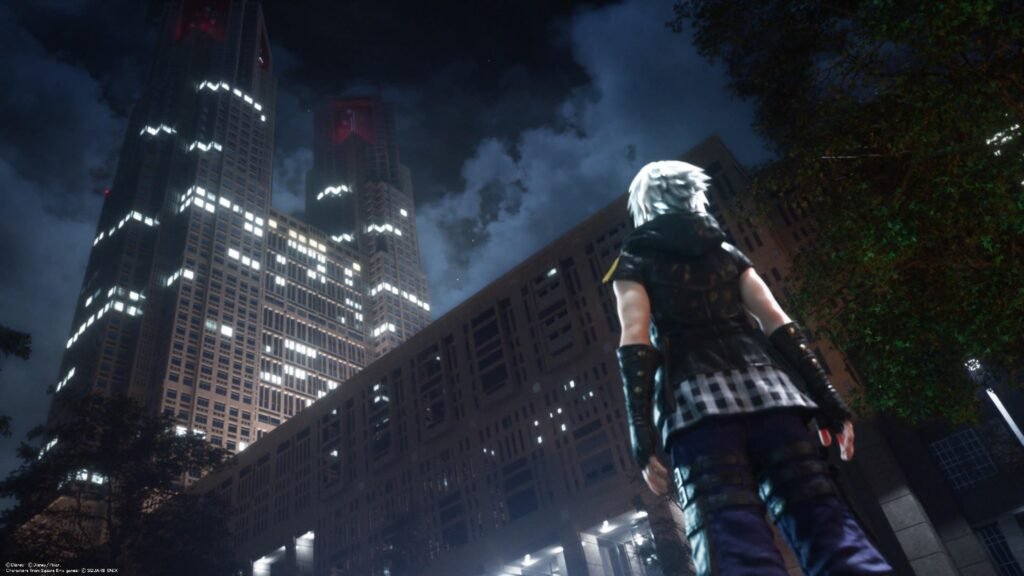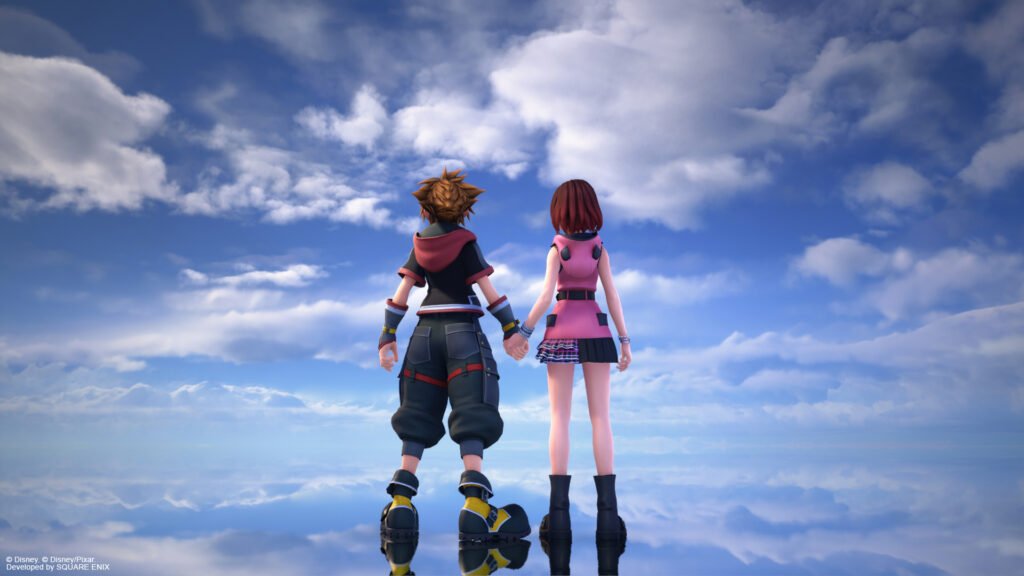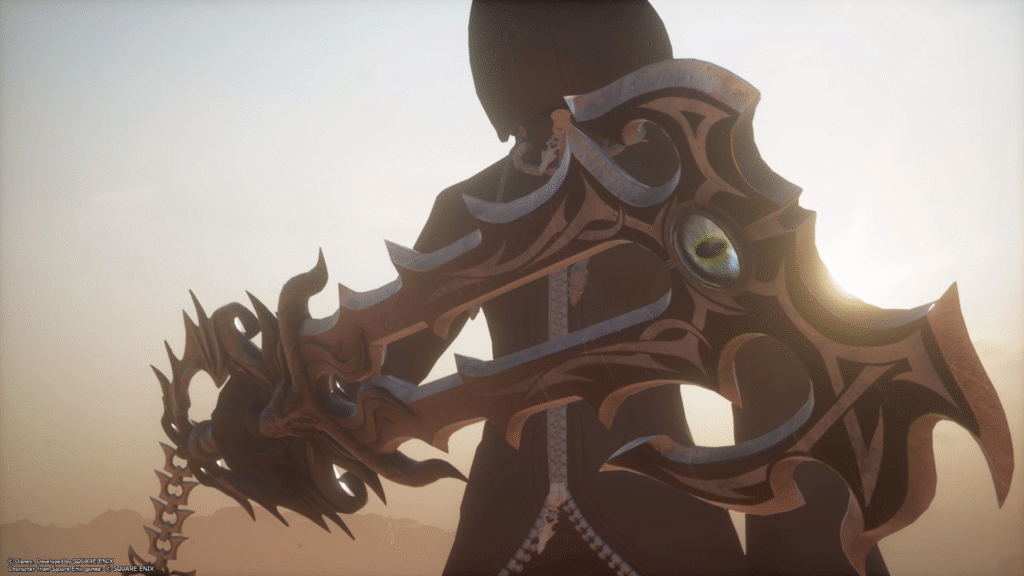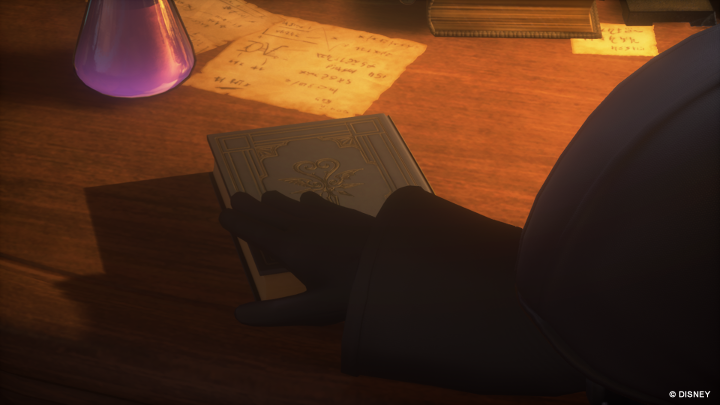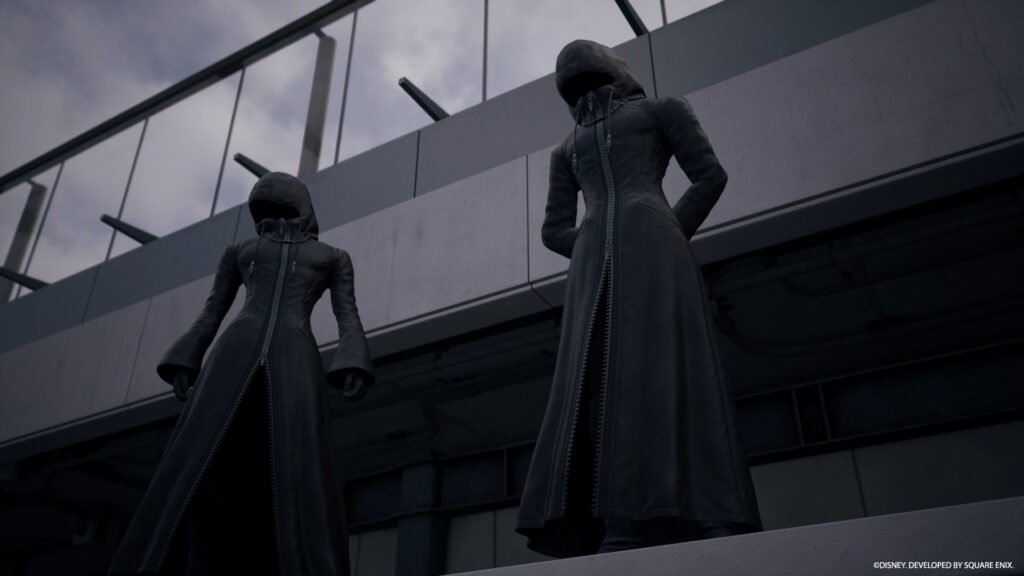Is this mysterious figure truly pulling the strings of destiny, or is he merely the most sophisticated prisoner of a predetermined fate that extends far beyond even his vast knowledge?
In the labyrinthine narrative of Kingdom Hearts, few characters are as enigmatic as the Master of Masters. He appears to be the ultimate puppet master, orchestrating events across centuries through elaborate schemes and temporal manipulation. Yet a deeper examination raises a profound question:
Disclaimer: This post contains affiliate links. I may earn a small commission if you purchase through these links at no extra cost to you. This helps support my gaming content.
The Case for the Puppet Master
At first glance, the Master of Masters appears to be the architect of virtually everything that happens in the Kingdom Hearts universe. His influence stretches across time and space in ways that dwarf even Master Xehanort’s ambitions.
Evidence of Control:
The Master’s manipulation begins with the very foundation of the series’ conflicts. Many generations later, the Master makes contact with a young Xehanort in the, gifting the boy with a black coat, and has him tour the worlds to broaden his horizons. This single interaction sets in motion the entire Dark Seeker Saga, suggesting the Master orchestrated Xehanort’s eventual path toward darkness.
His temporal abilities place him in a league of his own. The Master of Masters devised a complex plot to enable himself to travel to the future by way of his Gazing Eye being stored in the No Name Keyblade he gave to Luxu with Luxu holding memories of him in the future at all points of the Gazing Eye’s or his own existence during his many incarnations and the Book of Prophecies containing a Waypoint for himself to travel. This isn’t just time travel – it’s the creation of an entire temporal infrastructure that allows him unprecedented freedom.
Most telling is his ability to circumvent the rules that bind everyone else. Due to his foreknowledge of the future via the Gazing Eye, he is able to exploit a loophole in the rules of time travel and remember the events he witnesses during his time traveling and may not have return to the time period he left aswell. While other time travelers lose their memories and become prisoners of predetermined loops, the Master retains his knowledge and agency.
The Grand Design:
The Master’s plans operate on a scale that encompasses multiple Keyblade Wars, the manipulation of his own apprentices, and the careful positioning of key players across centuries. The Master explains that the Book of Prophecies only depicts selected events and he intends to use it as his waypoint, while the Gazing Eye and Luxu’s memories act his medium, giving him direct access to any destination in time. He doesn’t just observe the future – he actively shapes it through strategic interventions at crucial moments.
His creation of the Foretellers, the orchestration of the original Keyblade War, and even the positioning of characters like Ventus to eventually encounter Terra and Aqua all appear to be part of a master plan that spans generations. The fact that he also stating that he is not bound by either the boundaries of time or the worlds, suggesting that he, like Merlin and Yen Sid, has the ability to circumvent the normal rules of time travel reinforces the image of someone operating outside the normal constraints of reality.
📚 Kingdom Hearts: The Complete Novel Collector’s Edition
The Complete Dark Seeker Saga in Literary Form
Experience every installment from the original Kingdom Hearts through Kingdom Hearts III in this beautiful collector’s edition. Features all novel text and illustrations, plus 13 art prints and a metal keychain replica of Sora’s Kingdom Key for the ultimate fan collection.
🔗Buy on Amazon
The Case for the Prisoner
However, a closer examination reveals troubling contradictions in the narrative of the Master as an all-powerful architect. Several key pieces of evidence suggest that even his vast manipulations might be part of a predetermined design that extends beyond his control.
The Bootstrap Paradox:
The Master’s very ability to orchestrate events relies on knowledge gained through his Gazing Eye, which sees the future by being passed down through time via Luxu and eventually reaching Xehanort. But this creates a logical loop: the Master can only plan because he sees a future that exists because of his planning.
When he tells Luxu “Bingo! The fact that it exists is proof of your success! That means you’ve trained a worthy apprentice, passed down that handsome Keyblade, and fulfilled your role!” he’s pointing out that the Book of Prophecies can only exist if Luxu succeeds in his mission – because the book is written based on what the Gazing Eye sees as it’s passed down through time. This creates a circular dependency where the book’s existence depends on events that only happen because the book predicts them.
The Master’s reaction to this paradox is telling but ambiguous. His excitement could indicate satisfaction that his elaborate plan is working, or it could suggest he’s discovering a predetermined outcome rather than creating one. The fact that he treats the book’s existence as proof of future success, rather than as something he’s directly controlling, raises questions about whether he’s truly the architect of these events or simply a very sophisticated participant in them.
Predetermined Constraints:
Despite his apparent freedom, the Master’s actions consistently serve to fulfill prophecies rather than prevent them. When his Foretellers express horror at the predicted Keyblade War, “Nah, not possible.” – when Ira talks about the duty as Keyblade wielders to prevent the war. The Master dismisses the possibility of prevention entirely. This could indicate omniscient control, but it could equally suggest he knows the events are truly inevitable – even for him.
The Darkness Factor:
The Master’s ultimate goal appears to be defeating the thirteen Darknesses, but his interactions with these entities reveal a complex dynamic. During their conversation about the lifeboats and time travel, “The Master questions about Darkness’s plan while Darkness remains unmoved.” This exchange suggests the Darknesses operate with their own agenda that doesn’t align perfectly with the Master’s control.
More significantly, when Darkness asks what he saw in the future, “the Master only replies, ‘A world I can’t even conceive’.” The fact that there exists a world he cannot conceive suggests fundamental limitations to his knowledge and control.
🎮 Amazon Movers & Shakers in Video Games
See what’s rising fast in the world of gaming. Updated hourly, Amazon’s Movers & Shakers highlights the products with the biggest jumps in sales rank across the entire Video Games category — from the latest titles to consoles, controllers, headsets, and more. It’s the easiest way to spot what gamers everywhere are picking up right now.
👉 Explore the Movers & Shakers in Video Games
The Third Possibility: Collaborative Prisoner
Perhaps the most compelling interpretation is that the Master of Masters represents a third category entirely: a character who is simultaneously puppet master and prisoner, operating within a predetermined framework while maintaining agency within those bounds.
Operating Within Constraints:
The Master’s genius may not lie in controlling destiny, but in understanding it so completely that he can work within its constraints to achieve his goals. His elaborate temporal schemes don’t break the rules of fate – they exploit them. When Darkness wonders which world the Master would disappear to, the Master teases that it is a world where neither light nor darkness can be controlled. His ultimate destination, Quadratum, might represent not conquest over destiny, but escape from its paradigm entirely.
The Collaborative Design:
Rather than being either completely free or completely constrained, the Master might be participating in a collaborative design with forces beyond his understanding. His manipulations of Xehanort, his positioning of the Foretellers, and his complex time travel schemes could all be his contributions to a larger tapestry that requires his specific expertise and knowledge, but doesn’t grant him ultimate control over the final outcome.
This interpretation explains why his plans consistently succeed in their immediate goals while serving larger purposes he may not fully comprehend. He’s not a puppet following a script, nor is he a director controlling every actor – he’s a sophisticated collaborator working toward an end he believes in, even if he doesn’t control every aspect of how that end is achieved.
📖 Kingdom Hearts Ultimania: The Story Before Kingdom Hearts III
The Ultimate Guide to Kingdom Hearts Lore and Characters
Dive into this gorgeous oversized hardcover featuring Kingdom Hearts art and trivia leading up to Kingdom Hearts III. Meticulously showcases each world, character, and equipment with detailed story summaries, rare concept designs and storyboards from across the entire series.
🔗 Buy on Amazon
The Implications for Kingdom Hearts
The question of whether the Master of Masters is puppet master or prisoner has profound implications for the Kingdom Hearts universe’s approach to destiny and free will.
If He’s the Puppet Master: This would suggest that even the most complex predetermined systems can be overcome through sufficient knowledge and clever exploitation of rules. It would mean that true freedom is possible, but only for those with the wisdom and power to transcend normal limitations.
If He’s a Prisoner: This would indicate that destiny in Kingdom Hearts operates on levels so fundamental that even characters with godlike foresight and temporal manipulation abilities are ultimately servants of predetermined fate. It would suggest that free will, while real on a personal level, is ultimately constrained by cosmic forces beyond any individual’s control.
If He’s Both: This would present the most nuanced view of destiny in Kingdom Hearts – one where predetermined fate and meaningful choice coexist in complex ways. Characters could have genuine agency within their roles while still serving larger purposes they don’t fully understand.
The Unanswered Questions
The Master of Masters remains deliberately enigmatic, and several key questions will likely determine which interpretation proves correct:
- Does his knowledge of the “world he cannot conceive” represent the limits of predetermined fate, or merely the current boundaries of his understanding?
- Are his elaborate temporal schemes genuine innovations, or sophisticated ways of fulfilling a role he was always meant to play?
- Will his ultimate destination in Quadratum represent true escape from destiny’s constraints, or simply the next phase of a predetermined journey?
🎵 Kingdom Hearts Birth By Sleep & 358/2 Days Original Soundtrack
Musical Journey Through Destiny and Choice
Experience the emotional soundtrack from Kingdom Hearts 358/2 Days, Re:coded, and Birth by Sleep. Features compositions by Yoko Shimomura, Tsuyoshi Sekito, and Takeharu Ishimoto, plus new tracks from Birth by Sleep Final Mix that capture the struggle between fate and free will.
🔗 Buy on Amazon
The Heart of the Mystery
Perhaps the most telling aspect of the Master of Masters is that even with all his knowledge, power, and temporal freedom, he still speaks in terms of hope and uncertainty about the future. In an attempt to get through to Darkness, the Master reveals that he’d seen a world which he cannot conceive, hoping to expand the world by rewriting the Book of Prophecies. The word “hoping” suggests that even he cannot guarantee the outcome of his plans.
This uncertainty might be the key to understanding his true nature. A puppet master should have certainty about the outcome of his manipulations. A prisoner should have resignation about his fate. But someone who hopes – someone who works toward a goal while acknowledging the possibility of failure – suggests a figure who operates in the space between absolute control and complete powerlessness.
In the end, the Master of Masters may represent Kingdom Hearts’ most sophisticated exploration of the relationship between destiny and choice: a character powerful enough to shape reality across time and space, yet humble enough to acknowledge that even his vast abilities cannot guarantee the future he envisions. Whether that makes him the ultimate puppet master or the most elaborate prisoner of destiny may depend entirely on whether his hopes for that inconceivable world ultimately come to pass.

